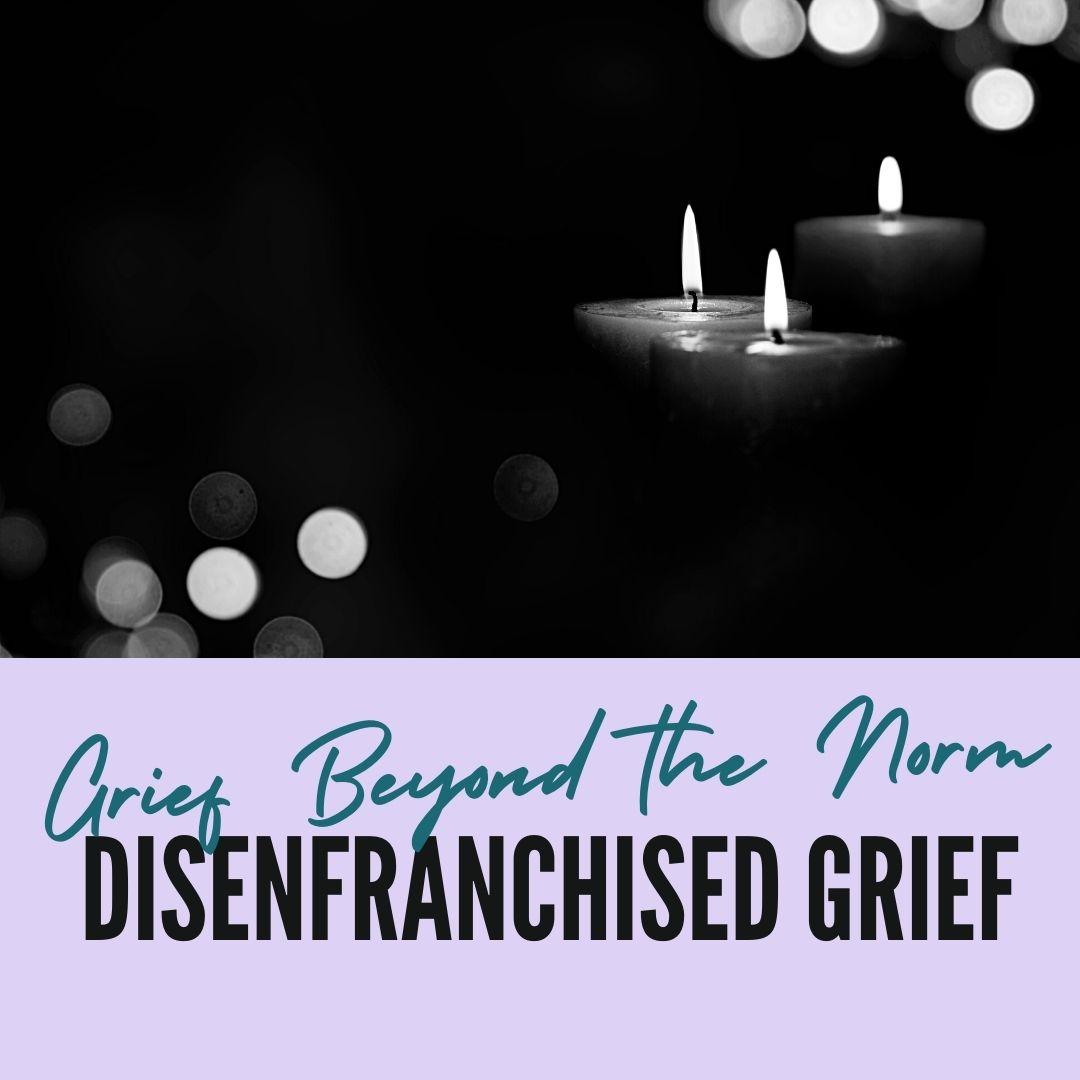
21 Mar Grief Beyond the Norm: The Reality of Disenfranchised Grief
When we think of grief, usually the first thing that comes to mind is the death of a loved one. But there are other types of loss that can cause just as much pain and grief- and these losses are often overlooked. I’m talking about disenfranchised grief. Disenfranchised grief occurs when there is no socially recognized event or ritual to mark the loss. This can include the loss of a pet, the end of a relationship, or even the loss of a job. These losses are often dismissed as not being “real” losses, but they can be just as painful as any other type of loss. If you are experiencing disenfranchised grief, you are not alone. In this article, we will explore what disenfranchised grief is and how you can cope with it.
Grief is a natural response to loss, and it can be extremely painful regardless of the type of loss. When we experience a typical death-related loss, there are often social rituals and events that help us process and mourn the loss. But when there is no socially recognized event or ritual to mark the loss, we can feel isolated and alone in our grief. This is what disenfranchised grief is all about.

There are many different types of disenfranchised grief, but some of the most common include:
- The death of a pet
- The end of a relationship
- The loss of a job
- The death of a loved one who was not considered “family”
- The death of a loved one from suicide or overdose
- Miscarriage or stillbirth
If you are experiencing disenfranchised grief, you may feel like you are the only one who is grieving. You may feel like your loss isn’t “real” or that you shouldn’t be grieving at all. This can be extremely isolating and can make the grief process even more difficult.
But it is important to remember that your grief is real, and you are not alone. There are many people who understand what you are going through and who want to help. There are also many resources available to help you cope with your grief.
Here are some tips for coping with disenfranchised grief:
- Seek support from friends and family.
- Join a grief support group.
- Talk to a therapist or counselor.
- Find online support groups or forums.
- Read books or articles about disenfranchised grief.
- Listen to podcasts or watch videos about grief and loss.
- Spend time in nature.
- Connect with your spiritual beliefs.
It is important to remember that you are not alone in your grief, and there are many people who want to help you through it. There are also many resources available to you, so don’t hesitate to reach out for help. Coping with disenfranchised grief can be difficult, but it is possible with the right support system in place.

If you or someone you know is struggling with disenfranchised grief, please reach out for help. There are many resources available, and there is always someone who wants to help. You are not alone in this.

Sorry, the comment form is closed at this time.